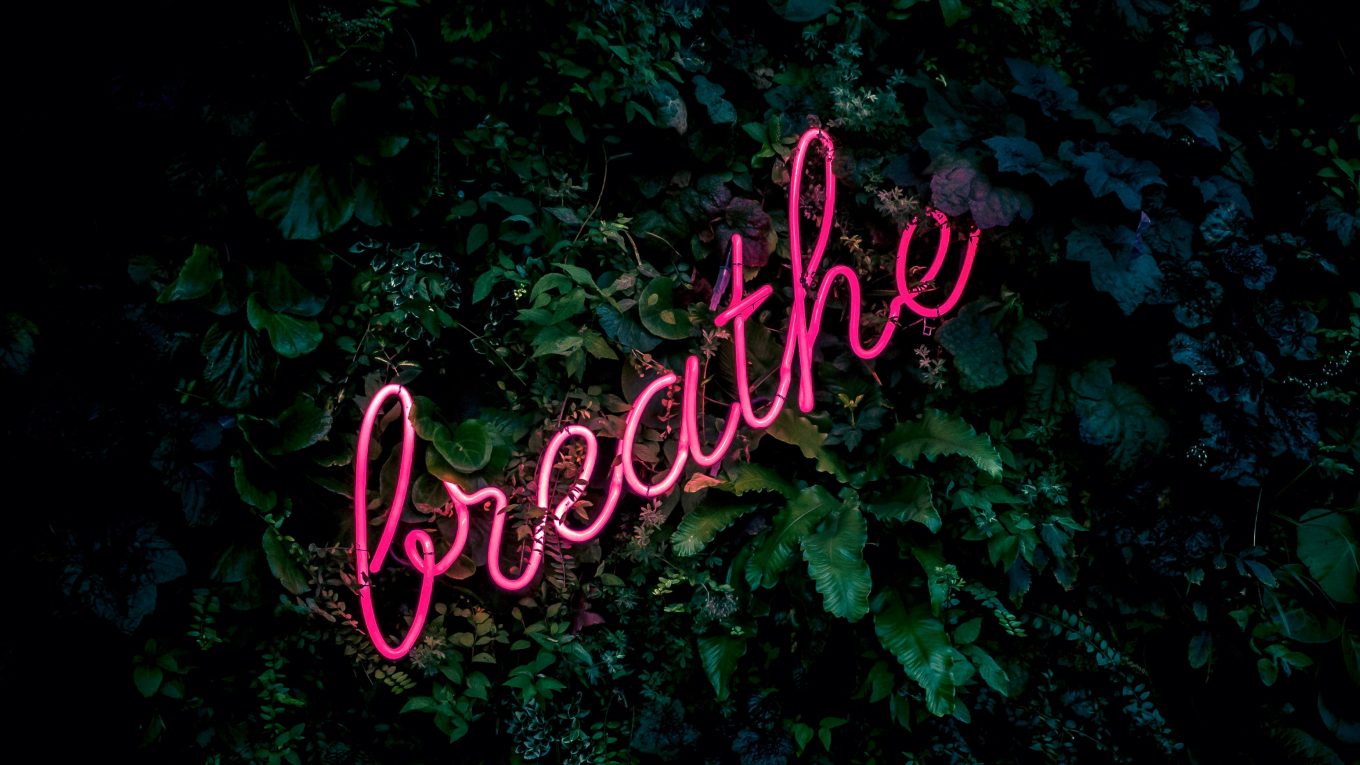Remember to Breathe!
This is a reflection response for the Research Colloquium course for week eight.
This phrase is oh! So! Important!
Guiney Yallop (2008) reflects on a comment by an audience member after he “said, “Thank—you,” and left the stage” where she suggested that “before thanking the audience, leave a pause after the final poem; she felt that the poems needed to sit there for awhile so that they could be absorbed by those who heard them”. He reflects that these “words were a gift, a reminder to breathe — between poems and after a performance. Like a poem, a breath can also be a gift — an offering — or an invitation.” (p. 65). These words are an invitation for each of us in this course, with its flurry of discussion posts, readings, proposal iterations, reflections, more readings, and deep thinking about our research, to remember to breathe! In my first meeting as a new school principal, these words were written on a stickie note by a friend who had been instrumental in my move into the principal role. In the middle of a particularly challenging section of the meeting where we were talking about legal decision making, she reached across the table and placed that note in my space. I forever thank her for that small act of ethical care.
So I’m reaching across my desk to each of my classmates, with my own version of a stickie note, as we dig into ethical decision making and REB forms, to remember, as Guiney-Yollop suggests, in his quote by Richardson (2000) “There is no such thing as ‘getting it right’ — only ‘getting it’ differently contoured and nuanced” (pp. 930-931)” (p. 67). Our ethical decision making needs to reflect on the humanity of those with whom we’ll engage in our research and the integrity of our work as researchers. It will be complex, nuanced and differently contoured.
As I consider decisions I’ll make, the REB forms and processes will guide what I will do, but these should not be the only ways I think about ethical actions in my research. These forms are only a space to breathe, as I bring the research into reality. I’ll also use the actions of other researchers to guide my work (Brant, 2011; Cameron, 2010; Delicata, 2016). I’ll also turn to other sources for ethical considerations, since complexity requires my attention to details (TCPS2 (2014), AERA Code of Ethics (2011), AoIR ethical standards (2012), OCT standards of practice (n.d.), Zimmer & Kinder-Kurlanda, 2017). But throughout this process, I’ll remember to breathe – to take time to stop and leave a space for my words to be absorbed into the research design to see where they may resonate or where they leave questions. This will allow me to focus on the audience experience – the participants, the readers of the dissertation, those who may be outside the field of study.
Final Thought: I find it interesting that Guiney-Yallop took 65 pages to present his dissertation, then followed it with almost 130 pages to breathe! Something to be said for breathing!

References
AERA Code of Ethics: American Educational Research Association. Approved by the AERA Council February 2011. (2011). Educational Researcher, 40(3), 145–156. https://doi.org/10.3102/0013189X11410403
Brant, J. (2011). Journeying toward praxis of Indigenous maternal pedagogy: Lessons from our sweetgrass baskets (PhD). Brock University, St. Catherine’s, Ontario.
Cameron, E. (2010). Throwing their weight around: A critical examination of faculty experiences with challenging dominant obesity discourse in post-secondary education (Doctoral dissertation). Lakehead University, Thunder Bay, Ontario.
Delicata, K. N. (2016). Women, abelism and schooling: Exploring the experiences of women with physical disabilities and women with learning challenges in a postsecondary school context (Doctoral dissertation). University of Windsor, Windsor, Ontario. Retrieved from https://scholar.uwindsor.ca/etd/5727
Government of Canada. (2018). Panel on research ethics: Navigating the ethics of human research. [website]. Retrieved from http://www.pre.ethics.gc.ca/eng/home.html
Guiney Yollop, J. (2008). Out of place: A poetic journey through the emotional landscape of a gay person’s identities within/without communities. (PhD dissertation). Western University, London, Ontario.
Markham, A., & Buchanan, E. (2012). Ethical decision-making and internet research: Recommendations from the AoIR ethics working committee (Version 2.0) (AOIR Ethics Working Committee). Retrieved from http://aoir.org/reports/ethics2.pdf
Ontario College of Teachers. (n.d.). Standards of care for the teaching practice: Ethical standards and standards of practice. Ontario College of Teachers. Retrieved https://www.oct.ca/-/media/PDF/Standards%20Poster/OCTStandardsFlyerENPUBLISH.pdf
Zimmer, M., & Kinder-Kurlanda, K. (Eds.). (2017). Internet research ethics for the social age: New challenges, cases, and contexts. New York: Peter Lang.
Image Attribution: Photo by Fabian Møller on Unsplash
